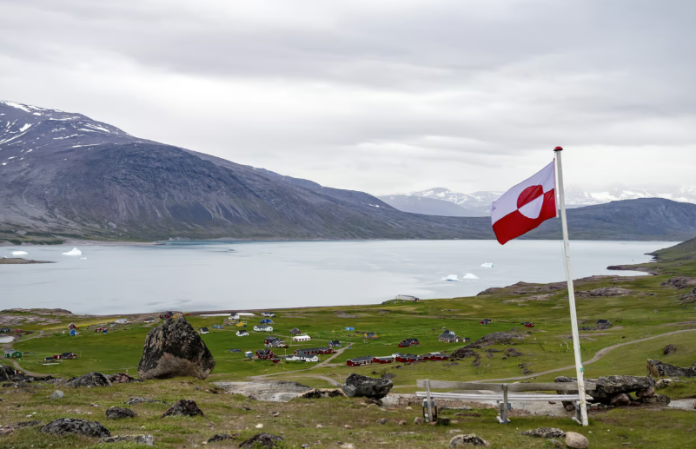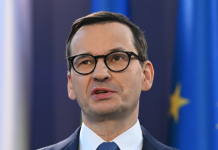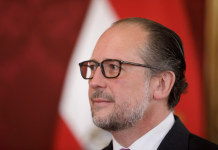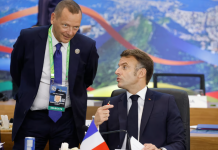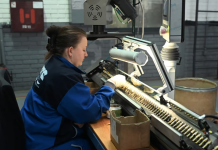Greenland may be portrayed as the new frontier for precious minerals and geopolitics, but Donald Trump should be careful what he wishes for in demanding control of the vast, remote and sparsely populated Arctic island.
The roughly 56,000 Greenlanders live in an autonomously governed country while former colonial ruler Denmark oversees their foreign policy and security. For decades, the Greenlanders have aimed to, or at least dreamed of, gaining full independence. Prime Minister Múte Egede said earlier this week Greenland’s not for sale.
According to Ole Ellekrog, a Danish journalist who has lived in Greenland, locals remain disgruntled over their relationship with Denmark. “Many Kalaallit (Greenlanders) that move to Denmark … are met with a great ignorance and arrogance from the Danish people,” Ellekrog told POLITICO.
“It is this growing resentment which has led to a lot of people in Greenland feeling like they are ready to try something else,” said Ellekrog, who added that the two sides’ strained relationship opens the way for figures such as Trump to step in “perhaps unknowingly or maybe shrewdly and with purpose.”
Copenhagen also foots the bill for about half of the island’s budget, the most practical obstacle to independence for the otherwise shrimp-dependent economy.
“That’s a bill of somewhere between $750 million to $1 billion a year,” Jon Rahbek-Clemmensen, associate professor at the Royal Danish Defence College, said in an interview. “Donald Trump doesn’t like bad deals, right?”
Put another way, Greenland is a very expensive midsize municipality for Denmark. And Washington can already freeload on the status quo.
The European Union’s investments in Greenland are also far larger than those of the United States. Despite that, Brussels is mostly waiting and seeing.
“It is clear that the sovereignty of states has to be respected,” European Commission spokesperson Anitta Hipper said during a press briefing on Wednesday, adding that Brussels looked forward to working with the next U.S. administration toward “a stronger transatlantic agenda.”
While the Commission does have a small representative office in Nuuk, the vacant post of EU special envoy for Arctic affairs was only filled in the fall by Claude Véron-Réville, the Commission said.
US objectives: Check
Grabbing Greenland — whether by purchase or force — wouldn’t really improve Washington’s outlook. The U.S. has three main objectives in Greenland and those are well met today. First off, the Pituffik Space Base (formerly known as Thule Air Base) is an essential military site for early warning systems and air power over the Arctic region.
Secondly, Greenland is actively courting investors to develop sustainable mining infrastructure for its deposits of rare earth minerals and potentially also copper, silver, platinum and titanium. Premier Egede has traveled to the U.S. several times since getting elected in 2021 to attract private investment — but no companies have made the leap.
Finally, the U.S. wants to prevent China from encroaching. Under pressure from Washington, Copenhagen blocked a state-owned Chinese company from developing three airport projects on the island, citing it would be a security risk.
Summing up, Rahbek-Clemmensen said “the U.S. is already getting what it wants. And it’s cheap.”
Minerals curse
Greenland’s mineral resources are becoming more accessible as climate change causes its vast ice cap to recede — but actual projects are scant.
The furthest developed mine near the southern tip of the country, Kuannersuit or Kvaneflejd, was effectively blocked from exploitation because its deposits of rare earths are mixed with uranium. The company holding the exploitation license has sued Greenland’s government for $11 billion.
Other deposits are much smaller and harder to access, meaning their exploitation would require vast sums of investment and a lot of time to develop.
Greenland’s voters will head to the polls at the latest in April, with Egede hinting during his New Year’s address that he might also propose a referendum on independence from Denmark. He’s in a tricky position though: Mining might pay Greenland’s way to independence, replacing Denmark’s annual grant. But his voters are worried too about the potential environmental impact.
Mette Frederiksen, Denmark’s prime minister, has conveniently pushed the question over to Nuuk, cleverly hoping to annoy neither Trump nor the Greenlanders themselves. When Trump previously suggested buying the island, she called it “absurd.” But by not panning his comments outright, Frederiksen might well create an avenue for deeper U.S.-Danish-Greelandic Arctic cooperation.
“When the storm has passed, it may well be that the U.S. and Greenland can negotiate a new form of cooperation,” concluded Ellekrog.
Graphic by Giovanna Coi. This article has been corrected to clarify that the EU appointed its special envoy to Greenland last fall.

